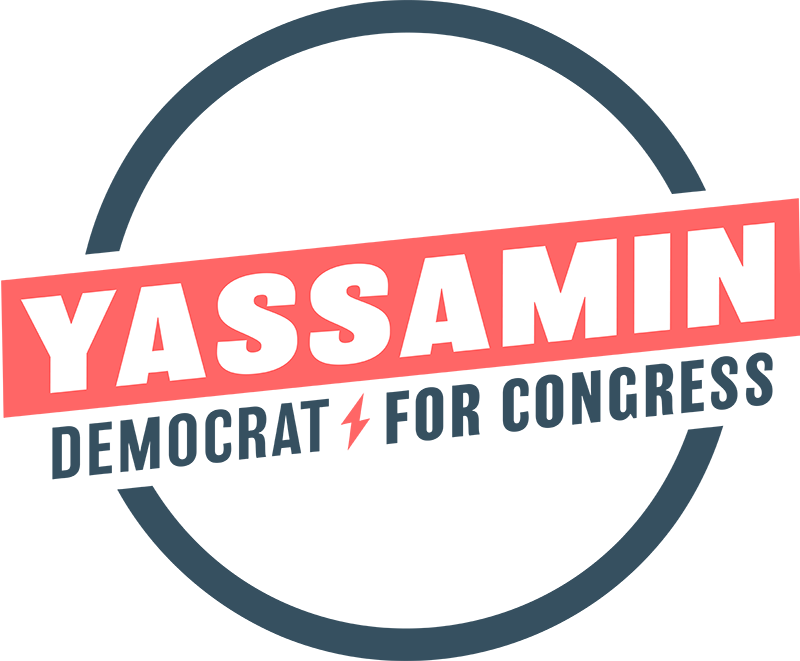Opinion: Cumbersome zoning laws slow construction and increase costs, making our housing shortage even worse. It’s time for Phoenix to lead the way on reform.
Yassamin Ansari, opinion contributor
In Phoenix, more than 16,000 residents are waiting for a housing voucher from the U.S. Department of Housing and Urban Development.
And once they get a voucher, they must fiercely compete with more and more residents for severely limited housing.
Phoenix is more than 150,000 housing units short of fulfilling our needs.
What got us here?
A confluence of bad policy and timing that led to a nosedive in our housing affordability.
Rent hikes push people to the streets
In 2019, 65% of Phoenicians could afford to buy a home. By 2022, only 18% of residents could afford to buy one.
For renters, the situation is even more dire.
In 2010, more than 90% of all rents were under $1,000, according to the Maricopa Association of Governments (MAG). Now, just 7% of apartments for rent are under $1,000.
This crisis has pushed more people out of safe and affordable housing and into living on the streets, in cars and in shelters.
People like Gerome Harris, who, after years of working a steady job and living in a two-bedroom apartment, fell into homelessness within a few weeks after his rent doubled and he was fired due to a work-related injury.
Stories like Harris’s underscore why city, state and federal leaders must do everything possible to lower rents and mortgages.
Phoenix should pass these 4 reforms
In Phoenix, I’ve been leading the charge to increase our housing stock in a responsible, sustainable and affordable way.
One of our biggest obstacles — outside of state preemption that has blocked cities’ ability to limit short-term rentals or regulate the cost of rent — has been current zoning laws and long rezoning and permitting processes, which slow down our housing unit construction and increase construction costs.
Here are four key zoning reforms I that urge my colleagues to adopt this year:
- Legalizing Accessory Dwelling Units (ADUs) in every part of the city.
- Removing or reducing parking lot minimums for multifamily housing construction, especially along major public transit lines.
- Legalizing additional density types, such as duplexes, triplexes and fourplexes, which are significantly more affordable than a single-family home.
- Implementing an incentive framework for affordable housing projects, such as density bonuses.
Why parking adds unnecessary costs
Phoenix’s long history of building outward instead of upward and prioritizing parking instead of housing has contributed to our housing stock shortage.
A single structured parking spot can cost up to $40,000 per space, adding hundreds of thousands of dollars in construction costs to housing projects to meet an arbitrary minimum.
State lawmakers discussed similar zoning reform during this year’s legislative session, but a mixture of lobbying from cities and rebellion from the conservative Freedom Caucus ultimately killed these bills.
Now, Phoenix must lead on housing reform to ensure we can build more affordable housing without it being impeded by neighborhood pushback often rooted in misconceptions and stereotypes about renters, density or low-income developments.
Yet, even once Phoenix makes these zoning changes, Phoenicians need more housing resources.
It’s why Councilwoman Betty Guardado and I urged our congressional delegation to fully fund the Housing and Urban Development (HUD) budget and change the housing choice voucher formula so that Phoenix could receive an additional 50,000 vouchers.
We need more housing vouchers from the feds
Our letter, which most of the City Council signed, also requested that Congress create a housing voucher guarantee for youth aging out of foster care since they are at high risk of homelessness.
These additional vouchers would help us secure housing for the 16,000 residents on our waiting list. Furthermore, it would ensure fewer people fall into homelessness — particularly young people and older adults.
Unfortunately, the recent bipartisan passage of the Fiscal Responsibility Act of 2023 significantly cut funding to HUD and put existing programs that cities like Phoenix rely on in peril.
While we are pushing through changes to expedite the construction of more affordable housing options, we need our federal partners to prioritize housing for everyone.
The recent announcement by the Biden administration to provide targeted housing and homeless services to Phoenix and other cities was welcome news.
We need to build with urgency and to do that, we must cut the red tape that holds up projects and legalize more affordable housing types.
I’m committed to ensuring that Phoenix leads the way.
Yassamin Ansari is Phoenix vice mayor and represents central-west Phoenix’s District 7. Reach her at yassamin.ansari@phoenix.gov.

